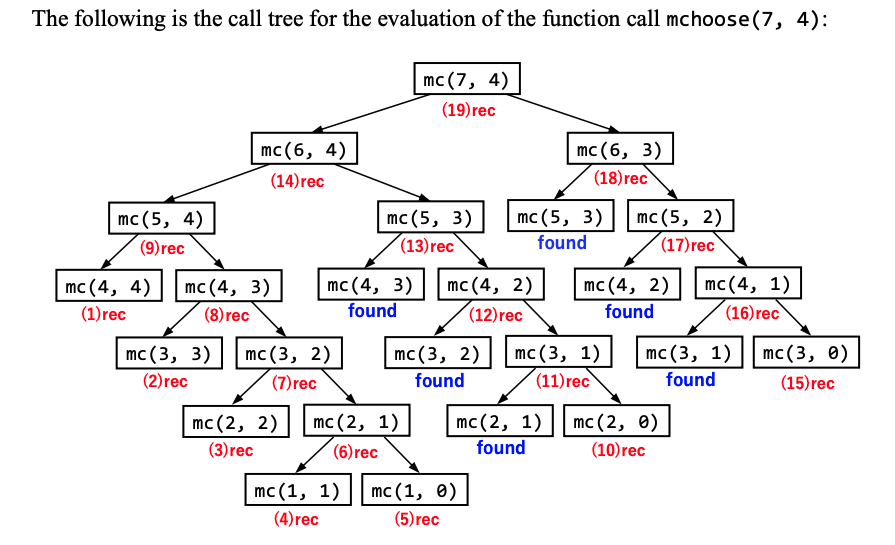Summary
Basic memory read and write for binary functions
js
const mem = [];
function read(n, k) {
return mem[n] === undefined ? undefined : mem[n][k];
}
function write(n, k, value) {
if (mem[n] === undefined) {
mem[n] = [];
}
mem[n][k] = value;
}
Concept
Trading space for time
- avoid doing repeated computation
- store results and retrieve it without having to compute it again
Useful in:
- fibonacci
- n-choose-k
Not useful in:
- factorial
Application
n-choose-k
js
function choose(n, k) {
return n < k
? 0
: k === 0 || k === n
? 1
: choose(n - 1, k) + choose(n - 1, k - 1);
}
js
function mchoose(n, k) {
if (read(n, k) !== undefined) {
return read(n, k);
} else {
const result = k > n
? 0
: k === 0 || k === n
? 1
: mchoose(n - 1, k) + mchoose(n - 1, k - 1);
write(n, k, result);
return result;
}
}

Unary function memoizer and tribonacci series
js
function memoize(f) {
const mem = [];
function mf(x) {
if (mem[x] !== undefined) { // check if value already exists in memory
return mem[x];
} else {
const result = f(x); // call the function
mem[x] = result; // store the result to memory and return
return result;
}
}
return mf;
}
// trib => 0, 1, 1, 2, 4, 7, ...
const trib = n => n === 0
? 0
: n === 1
? 1
: n === 2
? 1
: trib(n-1) + trib(n-2) + trib(n-3);
memoize(trib)(5); // -> 7 : but trib is actually not memoized, it makes calls to the un memoized trib()
const mtrib = memoize(n => n === 0
? 0
: n === 1
? 1
: n === 2
? 1
: mtrib(n-1) + mtrib(n-2) + mtrib(n-3))
mtrib(5); // -> 7 : but acutally memoized this time